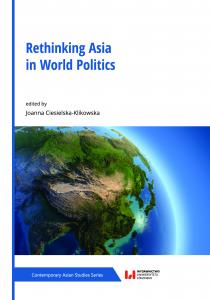Proliferation of RTAs in the World Economy as a Consequence of the Crisis within the WTO – the Case of Agreements between the EU and ASEAN Countries
Streszczenie
The ever-expanding and progressive crisis in fulfilling its key roles by the World Trade Organization (WTO) is the main reason behind the proliferation of Regional Trade Agreements (RTAs) all over the world. The growing trend in this regard could also be observed in actions taken by the European Union. The EU’s current policy of diversification and intensification of trade relations involves mainly the conclusion of numerous Free Trade Agreements (FTAs). A clear tendency, in this context, is a special interest in markets of the Asia-Pacific region, owing to their enormous economic potential. Of particular note, in this context, are the bilateral agreements concluded with countries of the ASEAN group, which, as a whole, constitute EU’s third largest trading partner outside Europe. These agreements, leading towards restarting negotiations of the ambitious region-to-region FTA with ASEAN, are particularly significant to reinforcing EU’s position in this economically important area, also, in light of other crucial agreements concluded in the region, such as the Regional Comprehensive Economic Partnership (RCEP) or the Comprehensive and Progressive Agreement for Trans-Pacific Partnership (CPTPP). Ensuring better access to the dynamic ASEAN market is a priority for the EU. This region is critical to European economic interests, which was emphasized in the trade and investment strategy for the EU – “Trade for All,” presented in 2015. In the face of the multilateral crisis within the WTO, the EU, as the most active participant of RTAs in the world economy, will, therefore, concentrate on implementing its current policy and activities in this regard – negotiating RTAs. This solution, owing to its discriminatory nature, further complicates world trade, however, on the other hand, it grants the EU greater bargaining power. Changing this situation requires reforming the WTO and rebuilding the organization’s position in the world trade system. Stale pogłębiający się i postępujący kryzys w wypełnianiu przez Światową Organizację Handlu (WTO) jej kluczowych ról jest główną przyczyną rozprzestrzeniania się regionalnych umów handlowych (RTA) na całym świecie. Rosnącą tendencję w tym zakresie można było zaobserwować również w działaniach podejmowanych przez Unię Europejską. Obecna polityka UE dotycząca dywersyfikacji i intensyfikacji stosunków handlowych polega przede wszystkim na zawieraniu licznych umów o wolnym handlu (FTA). Wyraźną tendencją w tym kontekście jest szczególne zainteresowanie rynkami regionu Azji i Pacyfiku, ze względu na ich ogromny potencjał gospodarczy. Na szczególną uwagę w tym kontekście zasługują umowy bilateralne zawarte z krajami grupy ASEAN, które w sumie są trzecim co do wielkości partnerem handlowym UE poza Europą. Umowy te, prowadzące do wznowienia negocjacji w sprawie ambitnej międzyregionalnej umowy o wolnym handlu z ASEAN, mają szczególne znaczenie dla wzmocnienia pozycji UE w tym ważnym gospodarczo obszarze, także w świetle innych kluczowych umów zawartych w regionie, takich jak RCEP czy CPTPP. Zapewnienie lepszego dostępu do dynamicznego rynku ASEAN jest dla UE priorytetem. Region ten ma kluczowe znaczenie dla europejskich interesów gospodarczych, co zostało podkreślone w strategii handlowo-inwestycyjnej dla UE – „Handel z korzyścią dla wszystkich”, przedstawionej w 2015 roku. W obliczu wielostronnego kryzysu w ramach WTO UE, jako najaktywniejszy uczestnik RTA w gospodarce światowej, będzie zatem koncentrować się na realizacji swojej dotychczasowej polityki i działań w tym zakresie – negocjowaniu RTA. Rozwiązanie to, ze względu na swój dyskryminacyjny charakter, dodatkowo komplikuje handel światowy, ale z drugiej strony daje UE większą siłę przetargową. Zmiana tej sytuacji wymaga zreformowania WTO i odbudowania pozycji organizacji w światowym systemie handlu.
Collections


